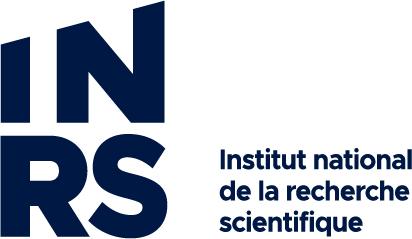INRS is announcing an investment of $1 million for research on COVID-19

Credit: INRS
Quebec City and Montreal, October 15, 2020 – Quebec is particularly affected by the COVID-19 pandemic. For more than 50 years, Institut national de la recherche scientifique (INRS) has placed research at the service of the development of society, focusing its efforts on strategic issues. Given this specific context, INRS is announcing an investment of $1 million for research on COVID-19. This particular program will support, as of January 2021, concrete projects related to research on the treatment, detection and rapid diagnostic tests for this virus, its impact within communities and its effects on the society as a whole, as well as on the transformations resulting from it.
INRS was founded by the Government of Quebec to contribute to the development of the Quebec society through research and the education of highly qualified researchers. “It was therefore essential for INRS’s Board of Directors and Management, in line with the 2019-2024 Strategic Plan, that significant funds from INRS be invested in research on COVID-19. This initiative aims at strengthening INRS’s leadership in research and helping Quebec overcome the many challenges and changes currently being faced by society,” said Linda Labbé, Chair of INRS’s Board of Directors.
“INRS directs all its research and training activities to respond to societal challenges, while ensuring the transfer of knowledge and technologies in all the sectors in which it operates. Thus, we have decided to dedicate $1 million to this mission and to help promoting research on COVID-19 within our institution. This pandemic affects so many aspects of our lives, as part of the society we live in, that financial investment is one of the means we have put in place to contribute to the world around us,” says Luc-Alain Giraldeau, INRS Director General.
This investment complements the efforts of Canadian and Quebec funding agencies, which are already funding more than 50 projects initiated by INRS faculty members. INRS’s intersectoral and interdisciplinary approach provides enormous potential for research on COVID-19. “Our faculty is already contributing to fundamental and applied research in strategic sectors. We have decided to enable researchers to further apply their expertise on a broad spectrum of topics related to COVID-19. This virus affects everyone in Quebec. It was fundamental for the INRS to support scientific research in this field and to provide financial assistance to researchers in this field,” adds Mr. Giraldeau.
Through this initiative, INRS wants to provide additional financial support to its research members while reinforcing its support for innovative projects. Aligned with the guidelines of major government funding agencies, these grants aim at supporting audacious interdisciplinary projects with strong potential for spin-offs. “It is important to encourage collaborative work between researchers from the same discipline, but also to stimulate cross-sectoral research partnerships,” says Pascale Champagne, INRS Scientific Director. “Interdisciplinarity is one of the core values of our university and this programme is an opportunity to highlight it.”
Each selected project will be eligible for funding renewal up to a maximum of $100,000 for one year. The research proposal may be adjusted upon renewal. “Progress in science is being made very quickly on topics related to COVID-19. We wanted to give this opportunity to our researchers so that they could adjust the objectives of their research according to scientific advances,” concludes the Scientific Director.
Examples of projects carried out at INRS:
- Resilience and perinatal stress in pandemic time : Cathy Vaillancourt
- Research on a broad-spectrum antiviral against coronaviruses: Steven Laplante, Laurent Chatel-Chaix, and Alain Lamarre
- Human Coronaviruses May Target Neurons: Pierre Talbot
- Detecting the COVID-19 virus in the field: Jonathan Perreault
- Les effets socioéconomiques de la COVID-19 sur les jeunes de 15-34 ans (in French only): Maria Eugenia Longo and the team of the Chaire-réseau de recherche sur la Jeunesse (CRJ)
- Two INRS researchers involved in the process of creating a vaccine: Nicolas Doucet and Yves St-Pierre
###
Find out more about the projects conducted at INRS by visiting our special page on COVID-19: the unpredictable enemy.
About INRS
INRS is a university dedicated exclusively to graduate level research and training. Since its creation in 1969, INRS has played an active role in Quebec’s economic, social, and cultural development and is ranked first for research intensity in Quebec and second in Canada. INRS is made up of four interdisciplinary research and training centres in Quebec City, Montreal, Laval, and Varennes, with expertise in strategic sectors: Eau Terre Environnement, Énergie Matériaux Télécommunications, Urbanisation Culture Société, and Armand-Frappier Santé Biotechnologie. The INRS community includes more than 1,400 students, postdoctoral fellows, faculty members, and staff.
Source :
Sophie Laberge
Service des communications
INRS
514 771-8256
[email protected]
Media Contact
Sophie Laberge
[email protected]




